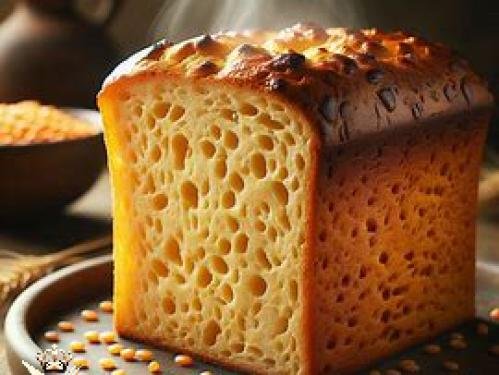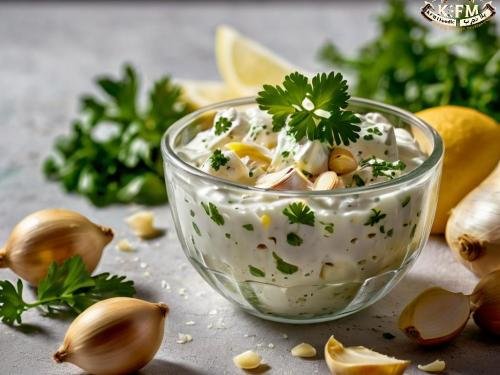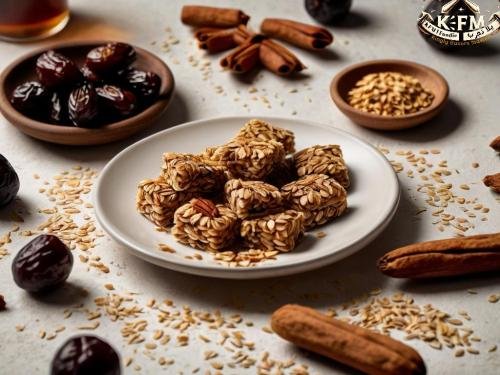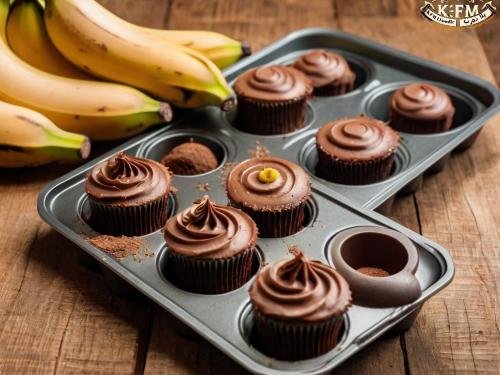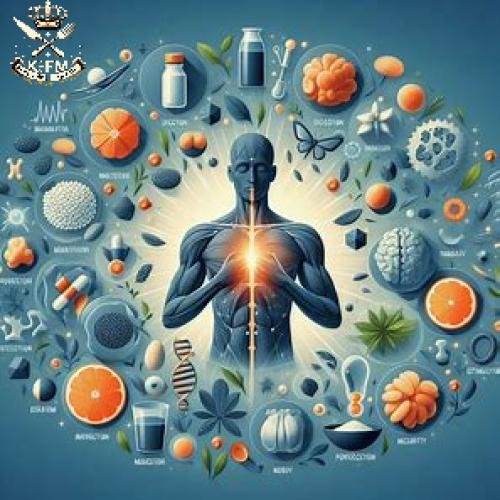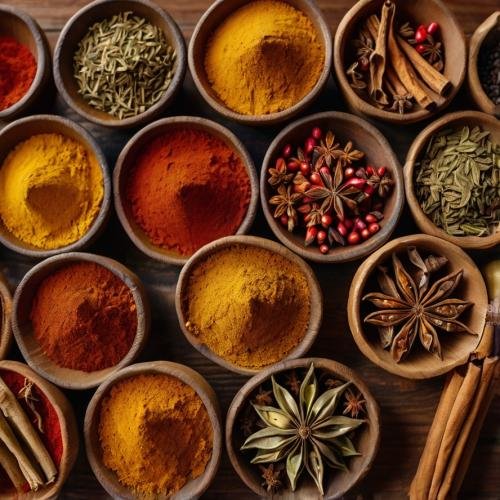Stuffed Pigeon: A Traditional Dish for Special Occasions
Stuffed pigeon is a famous traditional dish served at gatherings and celebrations. It combines a delicious taste with high nutritional value. Pigeon provides a good amount of protein, while the stuffing of rice or freekeh supplies energy and fiber, promoting satiety and supporting overall health.
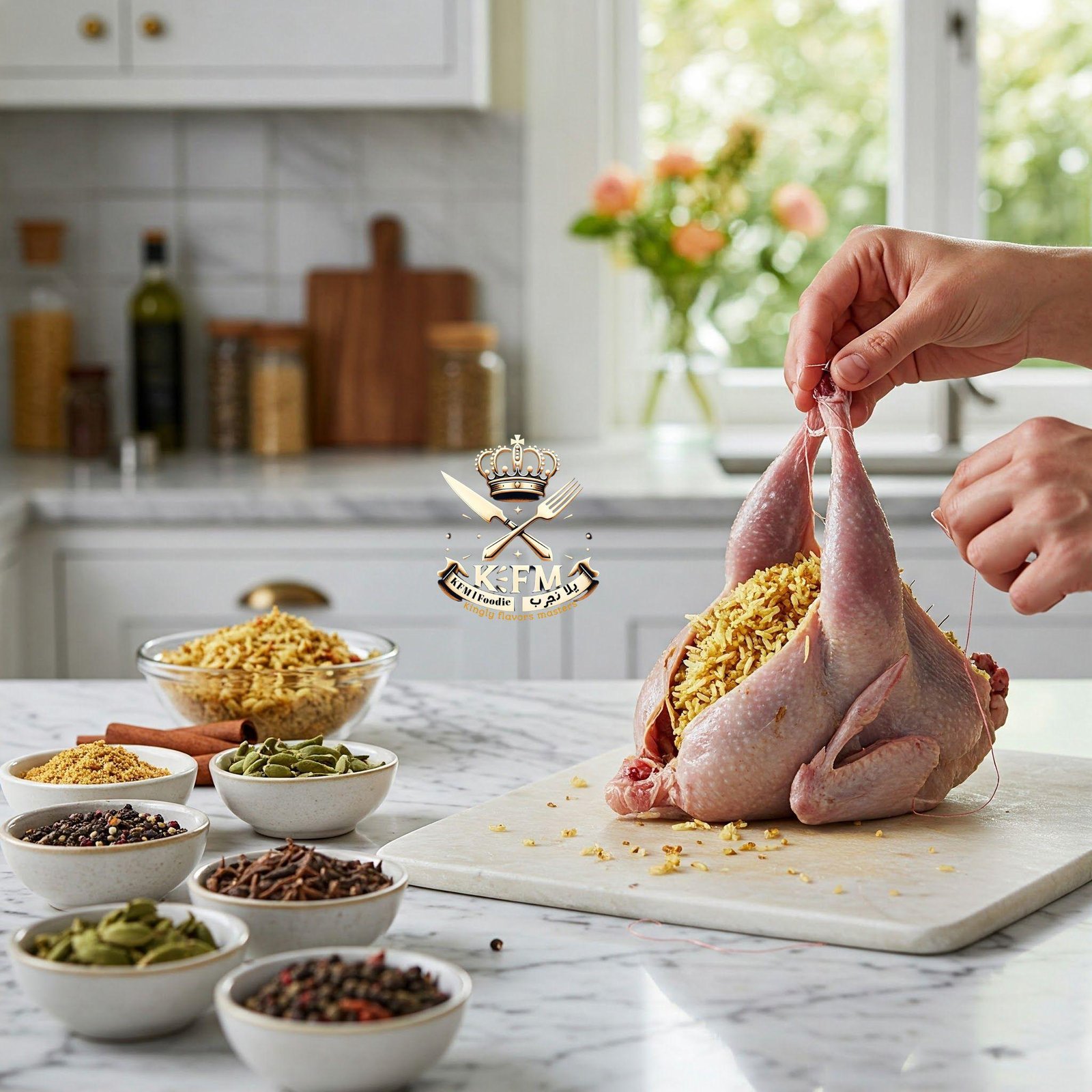
Ingredients:
- 2 pigeons, well cleaned
- 1 cup rice or freekeh (as preferred)
- 1 finely chopped onion
- 2 tbsp oil or ghee
- 1 tsp salt
- 1 tsp black pepper
- 1 tsp mixed spices
- 1 tsp cinnamon
- 1 cup hot water
- 2 bay leaves
- 3 cardamom pods
- Thread and needle for sealing
Preparation Steps
Soaking the Rice or Freekeh:
- Rinse the rice or freekeh thoroughly under running water to remove any impurities.
- Soak it in warm water for 15 minutes to facilitate cooking and enhance flavor absorption.
Sautéing the Onion & Preparing the Stuffing:
- Heat 2 tbsp of oil or ghee in a pot over medium heat.
- Add the chopped onion and sauté for 5-7 minutes until golden and translucent.
- Add the soaked and drained rice or freekeh, then season with:
- 1 tsp salt
- 1 tsp black pepper
- 1 tsp mixed spices
- 1 tsp cinnamon
- Stir the mixture well for 5 minutes to blend the flavors and lightly toast the stuffing.
Adding Hot Water:
- Pour 1 cup of hot water into the mixture and let it cook on low heat until the rice or freekeh absorbs half of the water (about 5 more minutes).
- Set the stuffing aside to cool before filling the pigeons.
Stuffing the Pigeon (10 minutes):
- Using a small spoon, carefully fill the cavity of each pigeon with the prepared stuffing. Avoid overfilling to prevent tearing during cooking.
- Securely close the pigeon’s opening with strong thread and a cooking needle to prevent the stuffing from spilling during boiling.
Cooking the Pigeon (50-55 minutes):
Boiling the Pigeon:
- In a large pot over high heat, bring enough water to cover the pigeons to a boil.
- Add:
- 2 bay leaves
- 3 cardamom pods
- Gently place the stuffed pigeons into the boiling water and reduce the heat to medium.
- Let them simmer for 30-40 minutes until fully cooked. You can check for doneness by inserting a fork into the meat; if the juices run clear, the pigeons are ready.
Browning the Pigeon:
- After boiling, remove the pigeons from the water and let them cool for 5 minutes.
- Heat 2 tbsp of oil or ghee in a wide pan over medium heat.
- Sear the boiled pigeons until golden and crispy (about 5 minutes).
Serving Suggestions:
- Serve the stuffed pigeon hot with a side of mint yogurt salad or warm soup.
- It can also be paired with sautéed vegetables or a plate of plain rice for an enhanced presentation and flavor.
Time Breakdown:
- Stuffing preparation: 25 minutes (including soaking rice and sautéing onions).
- Stuffing and sewing: 10 minutes.
- Boiling: 30-40 minutes.
- Browning: 10 minutes.
Total: 75-85 minutes from start to serving.
Storage & Reheating:
- Storage: Store cooked stuffed pigeon in the refrigerator, covered well to prevent odor absorption.
- Reheating: Reheat in the oven for 15-20 minutes or in the microwave with a cover to retain moisture.
Preparation Tips:
- Choosing Quality Pigeon: Opt for fresh pigeon to ensure better flavor.
- Pre-preparing the Stuffing: It’s best to prepare the stuffing in advance to enhance its flavor with spices and broth.
- Sealing the Pigeon Properly: Use a strong thread and needle to securely close the pigeon, preventing the stuffing from leaking.
- Browning Before Boiling: You can brown the pigeon for a few minutes before boiling to achieve a richer taste.
Tips for Recipe Success:
- Browning the Pigeon: Searing the pigeon after boiling gives it a golden color and enhances its flavor. Don’t skip this step for the best results.
- Advance Preparation: You can prepare the stuffing and pigeons a day before and store them in the fridge to save time on the cooking day.
🧽 How to Clean Pigeon Before Stuffing
A step many people, especially beginners, tend to overlook — and it directly affects both the taste and cleanliness:
Rinse the pigeon well under running water.
Use salt and flour to scrub the skin inside and out.
Soak it in water and vinegar for 10 minutes, then rinse it again.
Remove any fine feathers using a kitchen brush or tweezers.
Make sure there’s no blood residue left inside the cavity.
Tip: Some people like to add lemon slices to the water for extra disinfection.
🍲 Alternative Ways to Boil Pigeon
Instead of just boiling it in plain water, here are a few ideas to make the pigeon taste even richer:
Boiling in broth:
Water + onion + cardamom pods + bay leaf + carrots + celery.Boiling with orange juice:
Half water and half fresh orange juice, plus spices (cinnamon, ginger, a pinch of chili). It adds a refreshing, tangy flavor.Boiling in broth with dried lime (loomi):
Add 1 whole dried lime to the water for a subtle, traditional Arabic flavor.
⚠️ Common Mistakes When Preparing Stuffed Pigeon
Overstuffing:
If you overfill the pigeon, the rice will expand during cooking and cause the skin to tear.Skipping the browning step:
After boiling, it’s essential to brown the pigeon in ghee or butter for a beautiful color and an amazing flavor.Using cold water for boiling:
This traps unpleasant odors and flavors. Always start with boiling hot water.

Stuffing Variations & Serving Styles:
Stuffing Ideas:
- Nuts: Add almonds or pine nuts for a richer taste.
- Minced Chicken: A substitute for rice or freekeh, seasoned with saffron and turmeric.
- Vegetarian Stuffing: Use carrots and bell peppers with spices.
- Liver & Gizzards: Adds a tender texture and deep flavor.
Serving Suggestions:
- Sauces: Serve with tomato sauce or yogurt sauce for enhanced flavor.
- Sautéed Vegetables: Such as carrots and green beans for added nutrition.
- Salads: A fresh green salad or mint yogurt salad.
- Basmati or White Rice: A balanced side dish that can be flavored with spices and nuts.
- Yogurt Salad: Aids digestion and balances the richness of the meal.
- Soup: Lentil soup or orzo soup as a warm and nutritious starter.
Frequently Asked Questions
What’s the best way to prepare stuffed pigeon?
It’s recommended to clean the pigeon thoroughly, prepare the stuffing in advance, and brown the pigeon before boiling to enhance the flavor.
Can other types of stuffing be used?
Yes — you can use bulgur instead of rice, vegetarian stuffings, or even minced chicken.
How can I improve the flavor of stuffed pigeon?
Adding extra spices like saffron, turmeric, or minced garlic, and browning the pigeon before boiling will greatly boost its taste.
Can stuffed pigeon be prepared in advance?
Yes — you can keep it in the fridge until the day of serving or freeze it for a longer period.
📌 When is the best time to serve stuffed pigeon?
The perfect occasions are family gatherings, Ramadan, or festive events. It’s always a luxurious and special dish on the table.
📌 How long can stuffed pigeon be stored in the freezer?
It can be stored for up to 3 months in airtight freezer bags.
It’s best to freeze it after boiling and before browning.
📌 Can pigeon be cooked in the oven without boiling? How?
Yes — you can.
Season it well, stuff it, place it in a baking dish, and cover with foil.
Bake at 180°C (356°F) for about 40 minutes, then remove the foil and brown the top.
📌 What are the essential spices for stuffed pigeon?
Mixed spices
Cinnamon
Nutmeg
Cardamom
Bay leaves
A pinch of ginger, if you like
📌 How many calories are in one serving (per pigeon)?
Approximately 550 to 650 calories per pigeon (with stuffing and cooked in ghee).
If you use a vegetarian stuffing, it will be about 150 calories less.
📌 Should you use the whole pigeon or cut it in half?
It depends on the size:
If the pigeon is small (around 250g), it’s better to serve it whole.
If it’s large (over 350g), you can cut it in half after boiling.
Nutritional Warnings:
- For Vegetarians: This recipe is not suitable for vegetarians, but a plant-based stuffing can be used as an alternative.
- For Chronic Disease Patients:
- Diabetes & Heart Patients: Reduce ghee and salt, and use healthy oils.
- High Cholesterol Patients: Opt for roasted pigeon instead of fried to minimize saturated fats.
- For Children: Reduce spicy seasonings to prevent digestion issues.
- For Dieters: Use healthy oil and minimize fats for a lower-calorie meal.
Complete Nutritional Values for Each Ingredient in the Recipe:
Pigeon (2 pieces – approximately 300g)
- Calories: 280 kcal
- Protein: 40g
- Fat: 10g
- Saturated Fat: 3.2g
- Carbohydrates: 0g
- Cholesterol: 150mg
- Sodium: 80mg
- Iron: 2mg (12% of daily requirement)
- Vitamin B12: Supports red blood cell formation.
Health Benefits:
Rich in essential proteins for muscle building and immune system support.
White Rice (1 cup – approximately 200g)
- Calories: 205 kcal
- Protein: 4.3g
- Fat: 0.4g
- Carbohydrates: 45g
- Dietary Fiber: 0.6g
- Sodium: 1mg
- Calcium: 16mg
- Potassium: 55mg
Health Benefits:
A quick energy source that supports digestive health.
OR
Freekeh (1 cup – approximately 170g)
- Calories: 150 kcal
- Protein: 5g
- Fat: 1g
- Carbohydrates: 27g
- Dietary Fiber: 7g
- Calcium: 20mg
- Potassium: 150mg
- Iron: 1.6mg
Health Benefits:
High in fiber, which aids digestion and promotes satiety.
Onion (1 medium onion – approximately 100g)
- Calories: 40 kcal
- Protein: 1g
- Fat: 0.1g
- Carbohydrates: 9g
- Dietary Fiber: 1.7g
- Vitamin C: 11% of daily requirement
- Antioxidants: Boost immunity and reduce inflammation.
Health Benefits:
Contains antioxidants that strengthen the immune system and reduce inflammation.
Oil or Ghee (2 tbsp – approximately 30g)
- Calories:
- Vegetable Oil: 240 kcal
- Ghee: 260 kcal
- Total Fat: 27g
- Saturated Fat: 7g (if using ghee)
- Cholesterol: 30mg (if using ghee)
- Sodium: 0mg
Health Benefits:
Provides energy and helps absorb fat-soluble vitamins.
Salt (1 tsp – approximately 6g)
- Calories: 0 kcal
- Sodium: 2325mg (96% of recommended daily limit)
Health Benefits:
Helps balance body fluids but should be reduced to avoid high blood pressure.
Black Pepper (1 tsp – approximately 2g)
- Calories: 5-6 kcal
- Carbohydrates: 1g
- Dietary Fiber: 0.6g
- Calcium: 10mg
- Potassium: 30mg
Health Benefits:
Aids digestion and has antibacterial properties.
Mixed Spices (1 tsp – approximately 2g)
- Calories: 6-7 kcal
- Carbohydrates: 1.2g
- Dietary Fiber: 0.4g
- Antioxidants: Improve digestion.
Health Benefits:
Contains antioxidants that boost immunity and enhance metabolism.
Cinnamon (1 tsp – approximately 2.6g)
- Calories: 6 kcal
- Carbohydrates: 2g
- Dietary Fiber: 1.3g
- Calcium: 26mg
- Iron: 0.4mg
- Antioxidants: Help lower blood sugar levels.
Health Benefits:
Regulates blood sugar levels and improves circulation.
Hot Water (1 cup – 240ml)
- Calories: 0 kcal
Bay Leaves (2 leaves – approximately 1g)
- Calories: 2 kcal
- Dietary Fiber: 0.5g
- Calcium: 5mg
- Potassium: 9mg
Health Benefits:
Supports digestive health and adds aromatic flavor.
Cardamom Pods (3 pods – approximately 1g)
- Calories: 3-4 kcal
- Dietary Fiber: 0.3g
- Calcium: 7mg
- Potassium: 22mg
- Antimicrobial Properties: Aid digestion and add a fragrant taste.
Health Benefits:
Improves digestion and reduces bloating due to its antimicrobial properties.
Approximate Total Nutritional Values for the Whole Recipe (with Rice):
- Calories: 750-780 kcal
- Protein: 50g
- Total Fat: 30-35g
- Saturated Fat: 8-10g
- Carbohydrates: 55-60g
- Dietary Fiber: 4-5g
- Sodium: 2400-2500mg
- Calcium: 100-110mg
- Iron: 4-5mg
Approximate Total Nutritional Values for the Whole Recipe (with Freekeh):
- Calories: 710-730 kcal
- Protein: 51g
- Total Fat: 30-35g
- Saturated Fat: 8-10g
- Carbohydrates: 50-52g
- Dietary Fiber: 8-9g
- Sodium: 2400-2500mg
- Calcium: 100-110mg
- Iron: 4.5-5.5mg
Health Benefits of the Full Meal:
Stuffed pigeon is a nutritionally balanced meal, providing a mix of essential proteins for muscle health, carbohydrates for energy, and healthy fats. The spices and vegetables aid digestion and strengthen immunity, while freekeh or rice contribute fiber and essential vitamins to support gut health and enhance satiety.
Notes:
- Calories may slightly vary depending on the browning method and amount of fat used.
- Freekeh contains more fiber than rice, making it a better option for prolonged satiety.
- Reducing salt intake benefits individuals with high blood pressure or those following a low-sodium diet.
Summary:
Stuffed pigeon is a well-rounded and nutritious dish that combines proteins, carbohydrates, and healthy fats. It offers a distinctive taste, making it ideal for special occasions or family meals. Additionally, it can be prepared and stored in advance for convenient serving.














